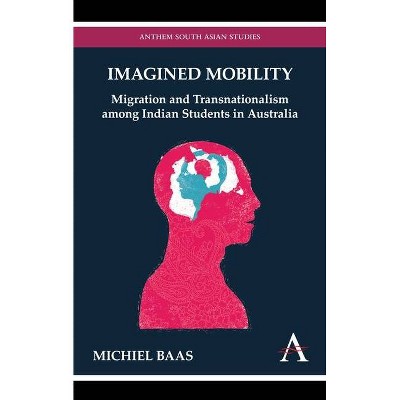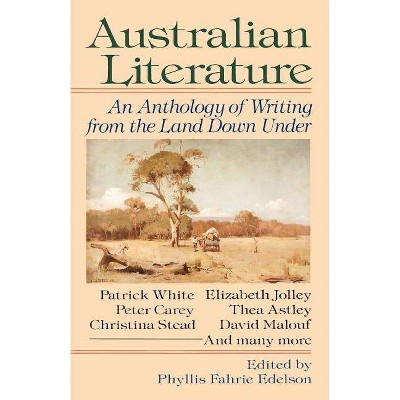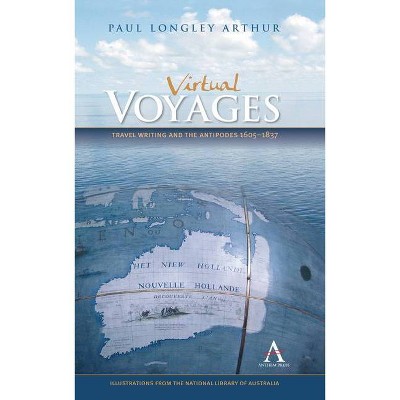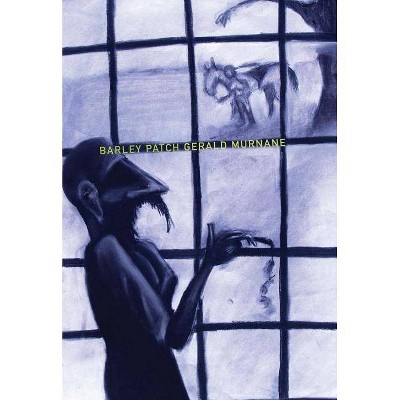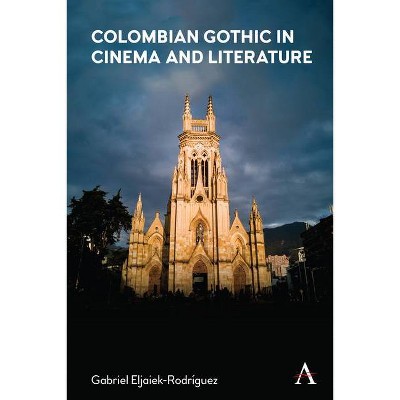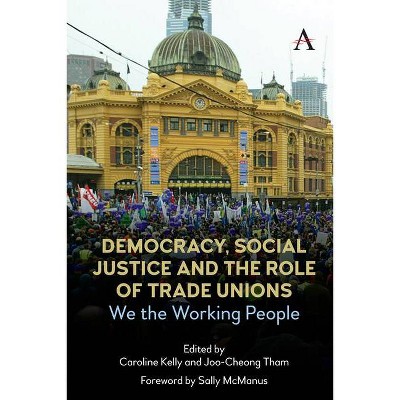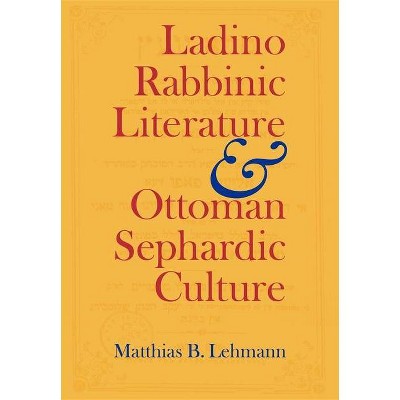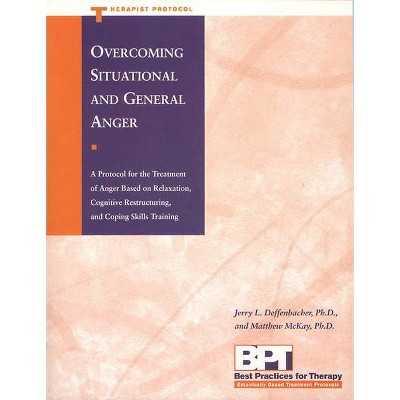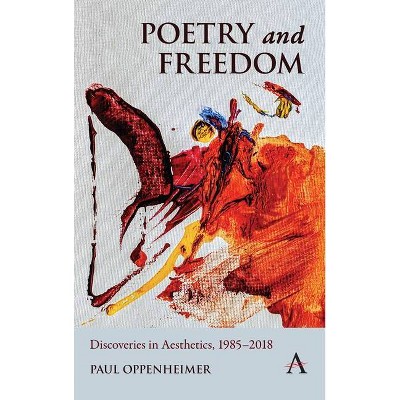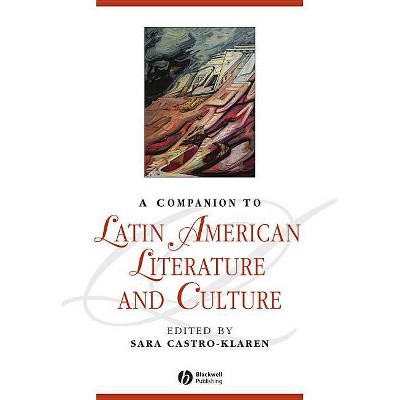The 'Imagined Sound' of Australian Literature and Music - (Anthem Studies in Australian Literature and Culture) by Joseph Cummins (Paperback)
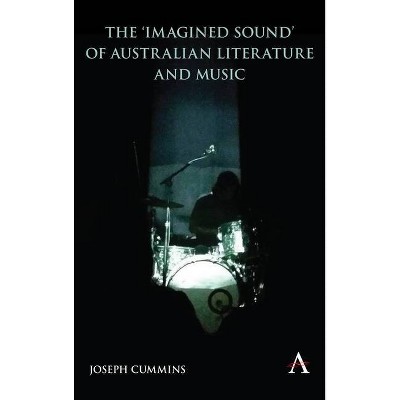
Similar Products
Products of same category from the store
AllProduct info
<p/><br></br><p><b> About the Book </b></p></br></br><p>It is the book to formulate the unique methodology of imagined sound, way to read and listen to literature and music, the colonial mode of knowing, controlling, imagining Australian space.</p><p/><br></br><p><b> Book Synopsis </b></p></br></br><p>'Imagined Sound' is a unique cartography of the artistic, historical and political forces that have informed the post-World War II representation of Australian landscapes. It is the first book to formulate the unique methodology of 'imagined sound', a new way to read and listen to literature and music that moves beyond the dominance of the visual, the colonial mode of knowing, controlling and imagining Australian space. Emphasising sound and listening, this approach draws out and re-examines the key narratives that shape and are shaped by Australian landscapes and histories, stories of first contact, frontier violence, the explorer journey, the convict experience, non-Indigenous belonging, Pacific identity and contemporary Indigenous Dreaming. 'Imagined Sound' offers a compelling analysis of how these narratives are reharmonised in key works of literature and music. </p> <p>To listen to and read imagined sound is to examine how works of literature and music evoke and critique landscapes and histories using sound. It is imagined sound because it is created by descriptive language and imaginative thought, and is as such an extension of the range of heard sound. The concept is inspired by Benedict Anderson's key study of nationalism, 'Imagined Communities' (1983). Discussing official (and unofficial) national anthems, Anderson argues the imagined sound of these songs connects us all. This conception of sound operates in two ways: it places the listener within 'the nation' and it bypasses the problem of both space and time, enabling listeners from across a vast space to, simultaneously, become one. Following Anderson, imagined sound emphasises the importance of the imagination in the formation of landscapes and communities, and in the telling and retelling of histories. </p> <p> 'Imagined Sound' encounters the different forms and tonalities of imagined sound - the soundscape, refrain, song, lyric, scream, voice and noise ¬- in novels, poems, art music, folk, rock, jazz and a film clip. To listen to these imagined sounds is to encounter the diverse ways that writers and musicians have reimagined and remapped Australian colonial/postcolonial histories, landscapes and mythologies. Imagined sound links the past to the present, enabling colonial landscapes and traumas to haunt the postcolonial; it carries and expresses highly personal and interior experiences and emotions; and it links people to the landscapes they inhabit and to the narratives and myths that give place meaning. As a reading and listening practice imagined sound pursues the unresolved conflicts that echo across the haunted soundscapes connecting the colonial past to the postcolonial present. The seeds of regeneration also bear fruit as writers and musicians imagine the future. 'Imagined Sound' fuses the spirit of close reading common to literary studies and the score analysis familiar to musicology with ideas from sound studies, philosophy, Island studies and postcolonial studies. </p><p/><br></br><p><b> Review Quotes </b></p></br></br><br><p>"Imagined Sound offers listening as a powerful vehicle through which we can understand the events, people and landscapes we think we know. Listening, Joseph Cummins says, needs to be practised and is always open to improvement. His scholarly approach and diversity of subject choices have resulted in an erudite and persuasive book, one that fosters listening and puts a focus on imagination, something even Albert Einstein considered more important than knowledge. -- Loretta Bernard, Loudmouth, May 2021"</p><br><br><p>'These essays take us closer to a recognition of the role of sound in the formation of national identity, a far more complex dynamic than simplistic celebrations of, for example, "national" musics. They reveal the contradictions and fissures in the bland generalisations that have generally underpinned representations of Australian identity.'<br /> --Bruce Johnson, Professor, University of Technology Sydney, Australia; University of Turku, Finland; and University of Glasgow, UK</p><br><p/><br></br><p><b> About the Author </b></p></br></br><p>Joseph Cummins is a scholar based in Melbourne, Australia. He has published widely on Australian post-war literature and music, with a focus on sound and landscape. His recent research also explores literature and family history. </p>
Price History
Price Archive shows prices from various stores, lets you see history and find the cheapest. There is no actual sale on the website. For all support, inquiry and suggestion messages communication@pricearchive.us
